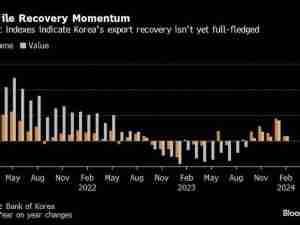Prime Minister Boris Johnson will find out Tuesday evening whether he has any chance of getting his Brexit deal through Parliament—and whether he can do it ahead of his Oct. 31 deadline.
His moment of truth will come at around 7 p.m. in London, with what’s known as the Second Reading vote—on whether Parliament agrees with the general principles of the bill. There will then be another vote immediately afterward on his proposed fast-track timetable for passing the law.
Key Developments:
- The main debate on the so-called second reading of the Brexit bill—essentially the general principle of the agreement—starts at 1:15 p.m. It’s been pushed back by an urgent question on Syria
- Prime Minister Boris Johnson to open the debate; Justice Secretary Robert Buckland to make closing remarks
- 7 p.m. House of Commons votes on the second reading and then immediately on the proposed fast-track timetable for rushing the law through Parliament (known as the program motion)
Johnson to Open Debate on Brexit Bill (12:30 p.m.)
Prime Minister Boris Johnson will open the main debate on his Brexit legislation in the House of Commons, his spokesman told reporters, with Justice Secretary Robert Buckland making closing remarks at about 6:30 p.m.
Voting down the timetable—known as the program motion—for the three-day passage of the Withdrawal Agreement Bill through the House of Commons would have “serious implications,” spokesman James Slack said, declining to say what the government plans to do in that scenario, including whether the Brexit bill would be pulled.
“If the program motion is passed, we have a clear path to leave on Oct. 31,” Slack said. “If it’s not passed, there’s no guarantee the EU will grant an extension.”
Brexit May Tie N. Ireland to EU Forever: Judge (12:25 p.m.)
Prime Minister Boris Johnson’s Brexit deal could permanently bind Northern Ireland to European Union law, according to an Irish judge at the bloc’s second-highest court, who suggested the accord may eventually bring the people of the island of Ireland together.
Johnson’s agreement would have “very long-term consequences for the continued separation of Northern Ireland from Ireland,” Judge Anthony Collins said at an event in Brussels late Monday. That’s because EU law and practice would continue to be applied, which will aid the economic development of the region, he said.
Boles Proposes Amendment to Extend Transition (11:15 a.m.)
Former Conservative MP Nick Boles, who now sits as an independent in Parliament, has proposed an amendment that would force the government to seek an extension of the Brexit transition period to Dec. 2022 if it hasn’t agreed a trade deal with the European Union by the deadline at the end of next year.
The amendment reflects unease among MPs that the government’s legislation creates a potential new cliff edge in Dec. 2020, when the U.K. could still face trading on no-deal terms with the EU if the government doesn’t reach a trade agreement. Labour’s Hilary Benn said on Twitter the draft law gives Parliament no say if the government doesn’t propose an extension—and Boles’s amendment seeks to address that.
Labour Party ‘Outraged’ at Government’s Timetable (11 a.m.)
The main opposition’s foreign affairs spokeswoman Emily Thornberry said the Labour Party is “outraged” at the government’s accelerated timetable for debating its Brexit bill, but stopped short of saying the party would oppose what it sees as an “artificial” deadline. She told the BBC a decision would be made at a shadow cabinet meeting later on how to vote on Tuesday.
Government Hints It Will Pull Bill If MPs Amend It (8.30 a.m.)
Housing Secretary Robert Jenrick told BBC radio the government will not accept any amendments to the Brexit bill that “compromise the integrity of the deal we have secured from the EU,” implying the government will pull the bill altogether and seek a general election if MPs change Johnson’s legislation to include a second referendum or to keep the U.K. in the EU’s customs union.
Labour has repeatedly voted down Johnson’s attempts for a general election, arguing an extension must be agreed with the European Union first.
Juncker Expresses Brexit Regret (8:25 a.m.)
For the European Union, Brexit has been a “waste of time and a waste of energy” when the bloc should have been doing other things, European Commission President Jean-Claude Juncker said.
Standing with EU Council President Donald Tusk before the European Parliament in Strasbourg, Juncker said the EU has done all in its power to prevent a no-deal Brexit. He reiterated that the European Parliament—which has a veto over the Brexit deal—would only be able to ratify the deal after the British Parliament. That’s a potential spanner in the works when it comes to Boris Johnson’s ambition to leave the bloc on Oct. 31.
EU’s Tusk Still Consulting on Delay (8:20 a.m.)
EU Council President Donald Tusk said the situation on Brexit is complicated by the events in the House of Commons on Saturday, and a delay will depend on what the U.K. Parliament “decides or doesn’t decide.” Tusk is still consulting the EU’s 27 leaders on how to respond to Boris Johnson’s extension request, he told the European Parliament in Strasbourg.
MPs Have Time to Scrutinize Deal: Government (8:10 a.m.)
Housing Secretary Robert Jenrick told Sky News there will be “sufficient” time for members of Parliament to go over the Withdrawal Agreement Bill and that the “vast majority” know where they on Brexit.
But MPs from across the House of Commons are threatening to vote against Boris Johnson’s accelerated timetable for his Brexit plan, arguing three days of debate is not enough for proper analysis of the 110-page piece of legislation.
Former Conservative Cabinet minister Rory Stewart, who now sits as an independent, told BBC radio Parliament should have “normal time” to discuss the bill, highlighting concerns from voters who wish to remain in the European Union and a lack of trust in Johnson’s government.
Johnson: Get Brexit Done and Move On (Earlier)
On the eve of the votes, the prime minister appealed to members of Parliament to back his deal and push it through the House of Commons.
“We have negotiated a new deal so that we can leave without disruption and provide a framework for a new relationship based on free trade and friendly cooperation,” Boris Johnson said in an emailed statement.
“I hope Parliament today votes to take back control for itself and the British people and the country can start to focus on the cost of living, the NHS, and conserving our environment,” he said. “The public doesn’t want any more delays, neither do other European leaders and neither do I. Let’s get Brexit done on Oct. 31 and move on.”








